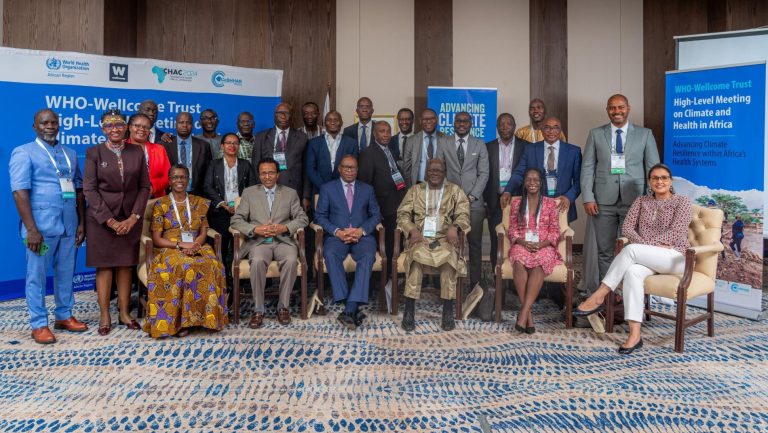ASHENEWS reports that the African health ministers and delegates have adopted the Harare Declaration, in a bid to addresss the impact of climate change on the health sector.
The Harare Declaration, endorsed during the first Climate and Health Africa Conference (CHAC), seeks to strengthen climate resilience within Africa’s health systems.
The declaration also aligns with the newly WHO-adopted framework for building climate-resilient and sustainable health systems in the African region.
It calls on African leaders to declare climate change as a public health emergency in their respective regions.
The document, which provides recommendations to address the challenges facing the region due to climate change also lists priority areas for countries.
Part of the recommendations include the promotion of inclusive dialogue between science, policy and communities, strengthening the capacity of African researchers as well as the provision of funding to take action against these impacts.
Most importantly, the document prioritises
calls for immediate and collaborative action against the impact of climate change.
“Africa faces an escalating burden of climate-sensitive diseases, with increasing transmission of vector- and waterborne illnesses. Recent statistics reveal a 14% rise in malaria transmissions in 2023, potentially putting an additional 147-171 million people at risk by 2030.
“Additionally, 18 African countries reported cholera outbreaks linked to natural disasters, contributing to a staggering 836 600 cases between January 2023 and March 2024, alongside widespread malnutrition and population displacement.”
The World Health Organisation (WHO), while commenting on the adoption of the declaration said that African countries already face uneven burden of health risks due to climate change.
In her remarks, the WHO Regional Director for Africa, Dr Matshidiso Moeti lauded the commitment of delegates to addressing the issues.
“Our region deals with multiple climate-induced emergencies every year. Ensuring health systems resilience is key. I applaud the commitments taken by health policy makers to build climate-resilient health systems that can adapt to and mitigate the impacts of climate change.”
Also speaking during the conference, President Emmerson Mnangagwa of Zimbabwe described the declaration as a positive step towards addressing the challenges posed by climate change.
“Climate change is not merely an environmental disaster. It is a public health emergency and I firmly believe the recommendations from this conference will pave the way for a healthier and more sustainable continent, where no one and no place is left behind.”


